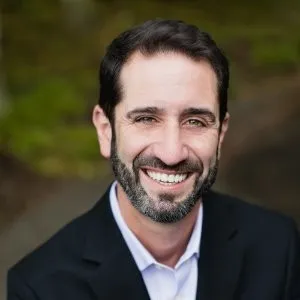Today’s finance chiefs are making strategic decisions and driving digital transformation, but to execute their changing roles successfully, they need to be supported by an equally resilient, adaptive team.
New technologies, ways of working and shifting business needs are impacting the day-to-day roles not just of the CFO, but of other crucial financial executives as “at the highest level, the entire finance organization is [undergoing] a seismic shift in ways that they haven't seen ever,” said Sanjay Sehgal, advisory head of markets for Big Four accounting firm KPMG.
Taking a look at the evolving new responsibilities that controllers — as well as other staff in finance departments — must embrace will be crucial for finance chiefs who must build modern finance teams capable of tackling the upcoming challenges of 2024.
Trusted advisor
The controller “is really becoming and has become the trusted advisor to the CFO,” Sehgal said in an interview.
As with many jobs, the role can vary depending on the company. But generally controllers oversee their company’s daily accounting operations, along with payroll and the accounts payable and receivable departments, according to human resource consulting firm Robert Half. It can also entail preparing internal and external records, handling the firm’s general ledger and taxes as well as reconciling accounts, coordinating audits and managing budgets.
Already, the importance of the controller position is reflected in compensation trends: the role ranks among the most well-paid members of the finance team, with corporate controllers in the 75th percentile — meaning they take home salaries greater than three-quarter of financial professionals — in compensation earning annual average salaries around $210,750, according to data from human resource consulting firm Robert Half.
Controllers rank among top paid financial professionals
Central to the role too is the responsibility controllers take for their company’s close activities, ensuring the business is “producing information in a controlled fashion, to report to the street and to the Securities and Exchange Commission for a public company,” said Kevin McBride, corporate controller and chief accounting officer for software-as-a-service company ServiceNow.
In his capacity as controller for the Santa Clara, California-based SaaS company, McBride oversees global payroll, accounts payable, travel, collections, and credit, he said in an interview. The role of controller and chief accounting officer can also have some overlap, but don’t need to be combined; a CAO can be another name for a principal accounting officer as required under the Sarbanes-Oxley Act, for example, McBride said. A CAO typically focuses on more broad corporate governance, therefore, while a controller’s focus is more narrowly on processes such as the close and ensuring financial statements are compliant with GAAP.

Controllership is “really getting to the numbers and the descriptors and the story behind financial performance and ensuring that process is well-controlled,” McBride said. Joining ServiceNow in November 2021, he previously logged a 21-year tenure at tech giant Intel, where he served in a variety of key financial roles including as its vice president of finance and corporate controller as well as its global accounting and financial services controller. He also spent time at the Financial Accounting Standards Board as an industry fellow before joining Intel.
Opening a path to the touchless close
In recent years, however, controllers have also found themselves branching out from a pure numbers function as part of the ongoing “seismic shift” taking place in the whole of finance — driven partly by the advent of generative AI, machine learning, cloud technologies and other digital tools which have captivated the attention of finance leaders in recent months, Sehgal said.
New technologies such as GenAI could fundamentally change how controllers operate and the purpose of the role — for example, “I can see a future where we have a touchless close process,” Sehgal said.
This would mean the entire financial close process would no longer need routine manual intervention by such people as the controller, according to a 2022 report by Gartner which noted 55% of finance executives were targeting a touchless close by 2025.
Finance teams could inch closer to making such a process a reality in 2024 as companies continue to experiment with the applications of generative AI, something that could rapidly shift where today’s controllers are directing their time and focus.
The new technologies that have filtered into accounting over the past few decades have enabled their own improvements in quality, efficiency and cost, McBride said, allowing business leaders to get the information they need to run the business at a lower cost. When it comes to the controllership, “it also gives us capacity to invest in other ways to help drive business impact,” he said.
However, it’s also important to remember that technology is “nothing new in accounting,” McBride — who started his career working on paper spreadsheets — said and that in “each one of these technology introductions, there's the hype and then there's the reality,” he said. Generative AI and the promise it brings remains in its early stages, he said.
As automation seeps into finance, technology opens up more time by removing routine tasks, in turn enabling the controller and the CFO to deepen their relationship. “With the CFO, we're spending more time talking about strategic matters and how to best position not just the controllership but finance,” McBride said.
The evolution of the relationship comes as CFOs are likewise pivoting to a role more focused on driving strategy and controllers are finding themselves responsible for processes that may previously have been under the remit of the finance chief.
“As the CFO elevates himself or herself, I think the controller plays a bigger role in the organization,” Sehgal said.
Finance chiefs are serving more and more often as the “right hand” of the CEO and spending less time poring over day-to-day numbers, said Claire Bramley, CFO of San Diego, California-based AI cloud analytics and data platform Teradata. The controller and the CFO work closely together to drive an effective, innovative and forward-looking finance function, but that focus on day-to-day operations is what separates the two positions, Bramley said in an interview.

As a finance chief, “you need to make sure that you've got the processes in place, you understand what's going on,” she said. However, the finance chief is now spending more time figuring out how to drive things forward at the company, she said.
Adding free cash flow forecasts
Bramley pointed to something like free cash flow as an example: because she’s now spending more time conducting strategy transformation work on part of Teradata, she’s now relying on her controller to take on free cash flow management forecasting, she said.
Controllers, critically, still serve as “the owners of the financial data, from a protocols perspective, from a reporting perspective, and the CFO and the executive teams depend on that,” Sehgal said. Indeed, taking responsibility for the numbers is still the core of the controller’s role, McBride agreed.
However, controllers are not immune to the job creep plaguing the financial function amid a lack of qualified accounting talent, emerging technologies and new business needs. As the CFO’s role evolves into a more strategic position, the rest of finance could potentially be pulled along in their wake.
“It's very easy for a controller to be kind of put off to one side … and not be pulled into, I'll say some of the business and strategic decisions,” Bramley said. “But if you decide as a controller that you want to be more involved in that, I think many companies give you the opportunity to build your business acumen, to build your business relationships and to be able to be an important part of managing the business.”
For example, the controller today has a huge opportunity to take point on digital transformation at a business — the controller organization tends to be the biggest team in the finance function, “so if they can drive [digital transformation], and they can be leading edge, then the rest of finance can adopt that moving forward,” Bramley said.
This can also provide a pathway to controllers to the CFO seat — Bramley spent two years serving as the global controller for HP, where she logged a 14-year tenure before making the jump to Teradata.
“The modern-day controller who is involved in strategic decision making, who is helping add business value, who is having an impact from a technology standpoint, I think, is an obvious candidate for a CFO,” she said.






















